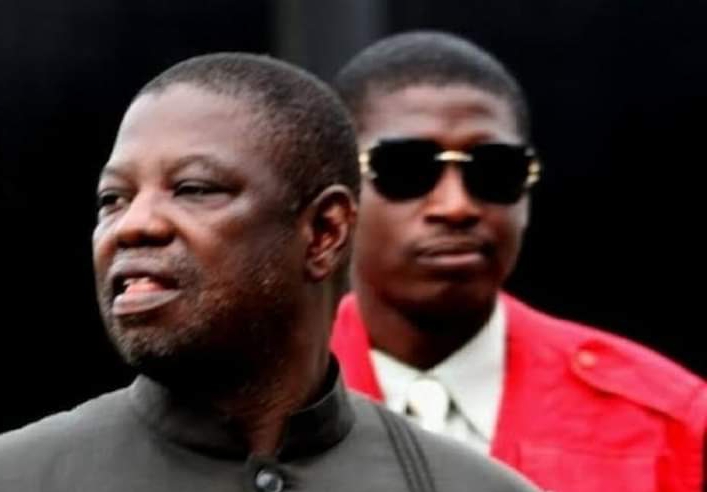Glory Ebomah
Justice Tijani Ringim of the Federal High Court sitting in Ikoyi, Lagos, on Wednesday, March 15, 2023, ordered a trial-within-trial in the alleged N304.1m fraud trial involving a former acting Director-General of the Nigerian Maritime Administration and Safety Agency, NIMASA, Haruna Baba Jauro, and two others.Jauro alongside Dr Dauda Bitrus Bawa and a company, Thlumbau Enterprises Limited, is being prosecuted on a 19-count charge bordering on stealing and money laundering to the tune of N304, 118, 500 (Three Hundred and Four Million One Hundred and Eighteen Thousand Five Hundred Naira).At today’s proceedings, the third prosecution witness, PW3, Orji Chukwuma, an investigator with the EFCC, in his further evidence, told the court that both the first and second defendants were invited to the EFCC office and that the first defendant had interactions with the investigating team in his office. Chukwuma, who was led in evidence by the prosecution counsel, O.A. Mohammed, said: “At the time, the team was one and was headed by Kanu Idagu. But it was later divided into three; so, I became the Head, Special Task Force 3.”
Chukwuma, who stated that both the first and second defendants were accompanied by their lawyers during their visit to the EFCC office, also told the court that the first defendant had reported based on a pre-arranged date because of his work schedule.
“But when they reported, we interacted with them in the Conference Hall, which is a big office that also houses other teams,” he added.
When asked to give the details of all that transpired during their interaction, the PW3 said: “They were shown the team’s findings. They responded orally. So, we asked them if they could put it in writing, which they obliged. They were cautioned and they volunteered their statements.
After writing their statements, a team member was directed to take them to the photographic section, where a senior staff, who wasn’t part of the investigation, read their statements to them line-by-line. The statements were made voluntarily and signed. The Attestation Form, which they signed, was returned to the team.
”The prosecution sought to tender in evidence the first defendant’s statements dated January 28, 2016, October 12, 2015, March 16, 2015, March 17, 2016, and March 24, 2016; the second defendant’s statements dated March 18, 2016, April 1, 2016, as well as the attestation document.
Counsel to the defendants, Olalekan Ojo, SAN, objected to the five statements made and the attestations by the first defendant on the grounds that they were obtained in violation of Section 29(2) of the Evidence Act.
According to him, “The statements were not made voluntarily. It was induced and made under oppressive conducts of the first defendant.”He, therefore, prayed the court to direct a trial-within-trial, to determine the issue of admissibility raised in respect of the first defendant. Ojo, however, raised no objections to the statements made by the second defendant. The prosecution counsel replied to the objection raised and told the court that the defence did not explain how the first defendant was oppressed and how the statement was taken under “oppressive conduct.
”He, therefore, submitted that the said objection did not exist and that Section 29(2) of the Evidence Act relied on by the defence does not provide for any such objection. In his response to the claim of inducement of the first defendant, Mohammed said no part of the Section shows that.
“The defence cannot object on the grounds of inducement.
“Also, the defence counsel has not mentioned any particulars of the oppressive conduct that was carried out for the first defendant, while those statements were being taken. The objection is vague.”
Mohammed, therefore, urged the court to discountenance the objection and treat them as “mere words, as the objection does not fall within Section 29 (2) of the Evidence Act.
”The defence counsel, in response, submitted that the objection of the prosecution counsel was “bereft of any legal basis.
”Ojo also submitted that Section 29 of the Evidence Act had been carefully drafted to accommodate several instances.“It is a narrow misconception for the prosecution to think that because the word inducement was not said, so it was not implied,” he said. While explaining his claim of “oppressive conduct”, Ojo said: “it is within the trial- within- a trial that evidence will be led.”He, therefore, urged the court to overrule the objection and make the necessary ruling.
“The statements of the second defendant were admitted and marked as exhibits E, E1 and E2Justice Ringim ruled in favour of the defence and ordered a trial-within-trial. The case was adjourned to June 19 and 20, 2023 for the continuation of trial.

